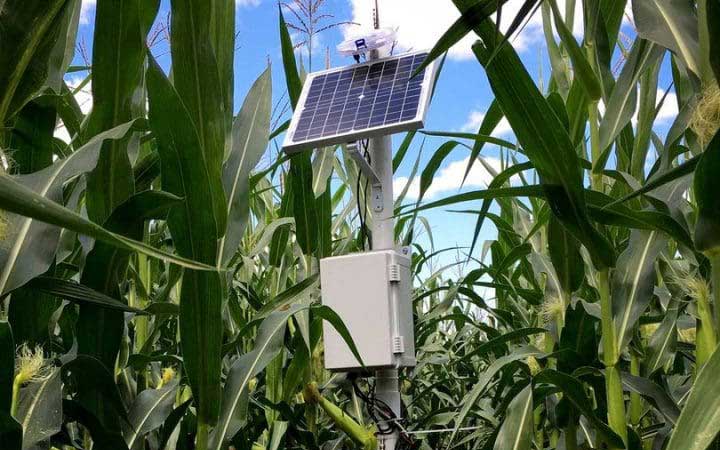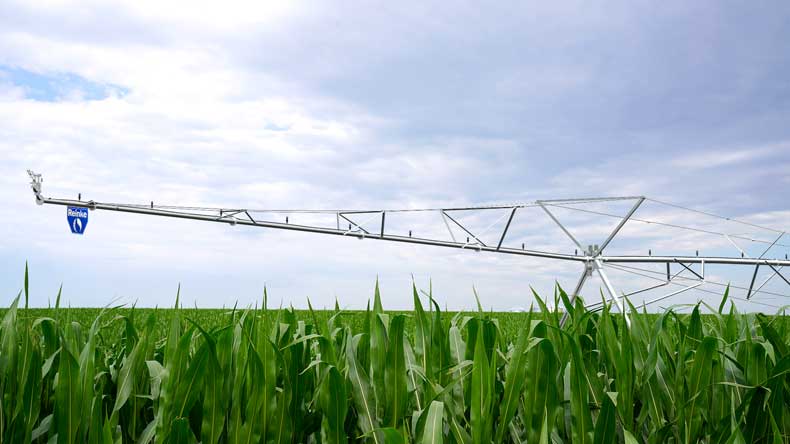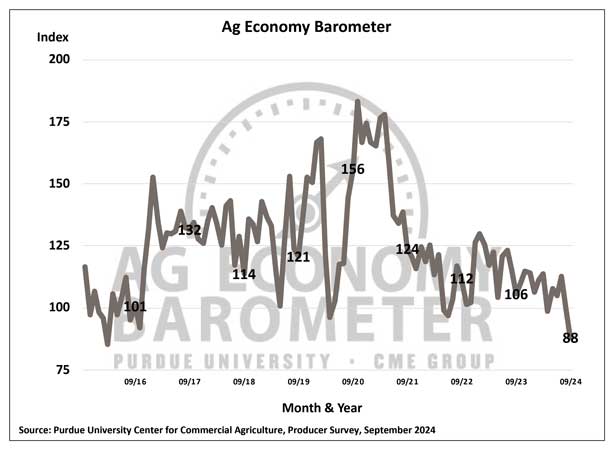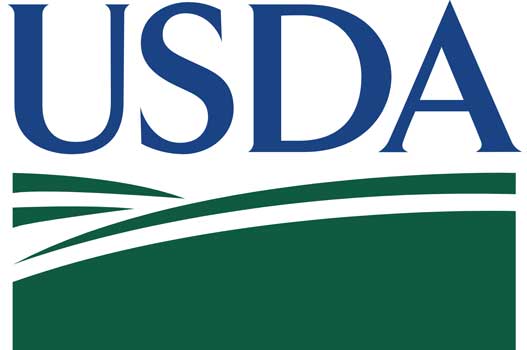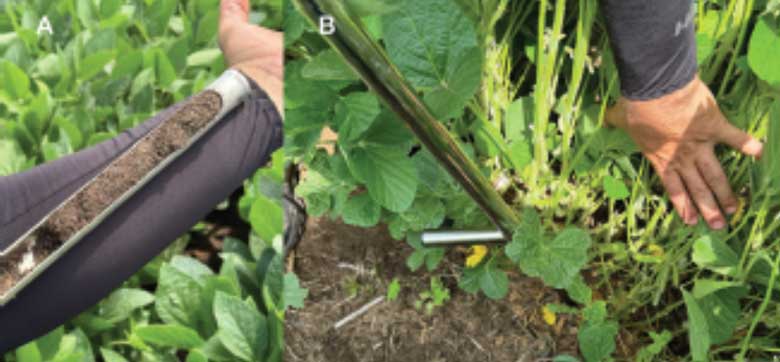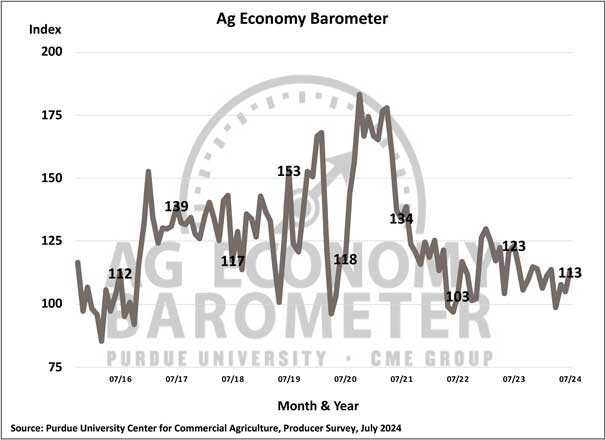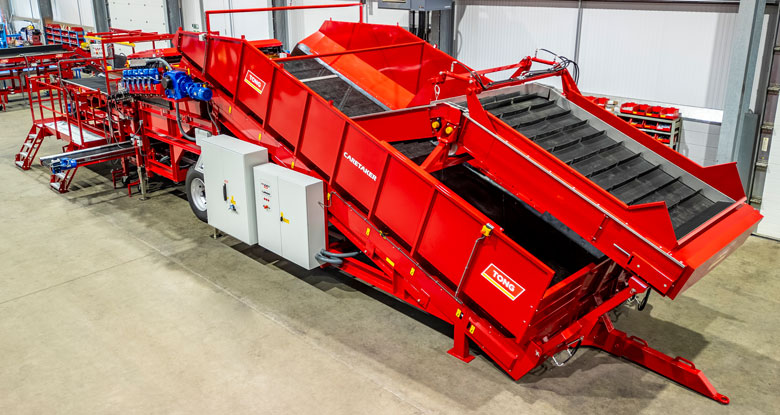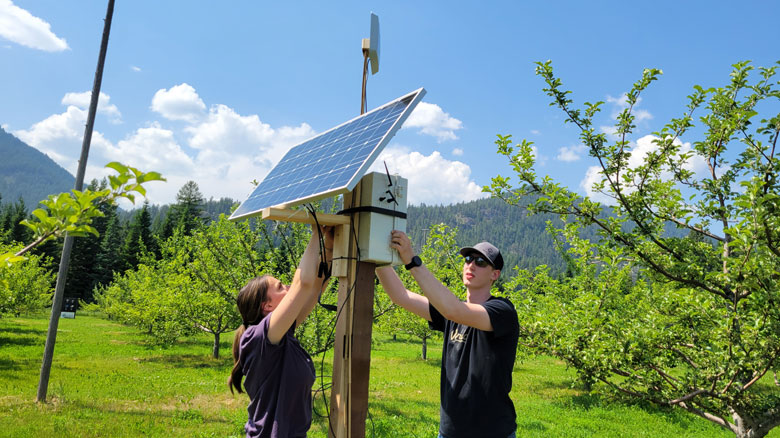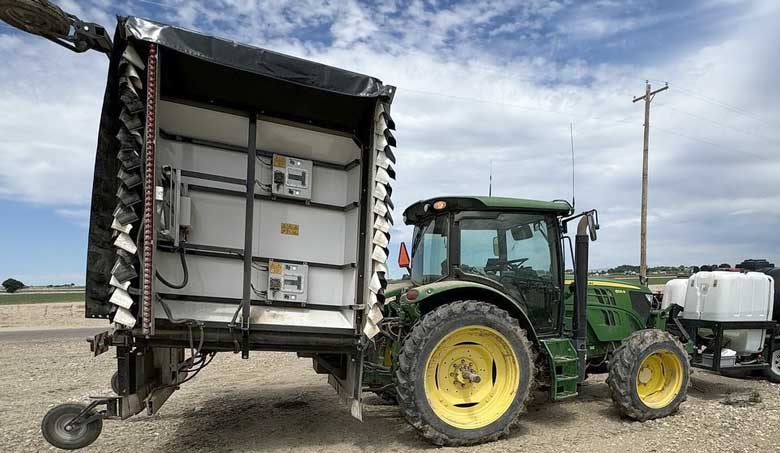A Michigan State University researcher has received a $394,600 grant from the U.S. Department of Agriculture’s (USDA) Natural Resources Conservation Service to develop a solar power-based irrigation technology that improves energy- and water-use efficiency.
Younsuk Dong, an assistant professor in the MSU Department of Biosystems and Agricultural Engineering, leads the three-year project.
Dong is an expert in accessible irrigation technology development, having already created and field tested the Low-Cost Monitoring System (LOCOMOS). LOCOMOS significantly lowers the initial cost of in-field irrigation sensors and is usable with a smartphone app.
The sensors collect data on soil moisture, leaf wetness and other environmental conditions, which is then analyzed by software that sends growers precise irrigation recommendations.
For the new project, Dong and Woongkul (Matt) Lee, an assistant professor at Purdue University who was previously at MSU, are designing a solar-powered microinverter. The small device is connected to a solar panel and allows electricity to be used for tasks such as soft-starting induction motors for irrigation or sent back to the grid for energy credits.
The microinverters will be connected with irrigation sensors via the Internet of Things — a system that promotes the exchange of data throughout a network — to increase efficiency of grid-connected irrigation.
The first objective involves scaling up a working solar-powered microinverter prototype that has already been manufactured and tested in the lab. The system will be installed for a year-long test at MSU research farms.
For the second objective, in the project’s second and third years, on-farm research will be conducted at partner farms in Michigan and Indiana. Some fields will be fitted with solar-powered microinverters, while others will serve as controls without the technology.
For the third objective, a decision support tool that considers in-field conditions, crop type, irrigation pump size and more will be created. Feedback from users will be continually collected, helping researchers optimize the system’s performance.
SOURCE: MSU AgBioResearch
